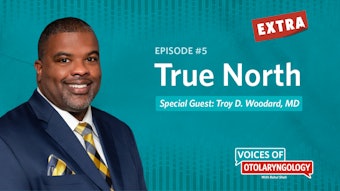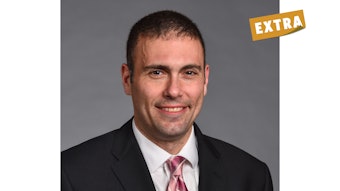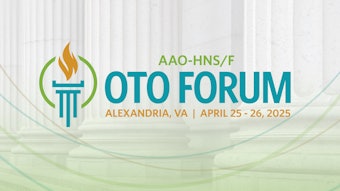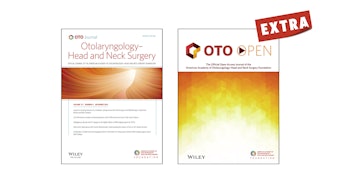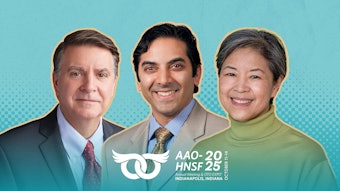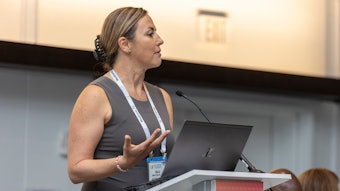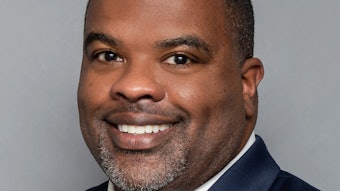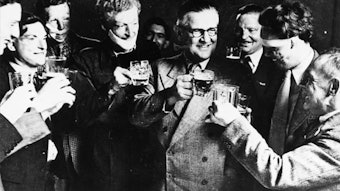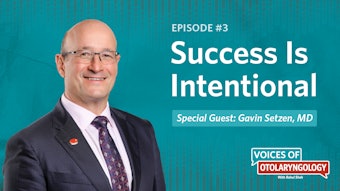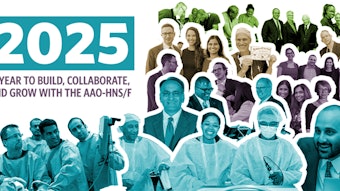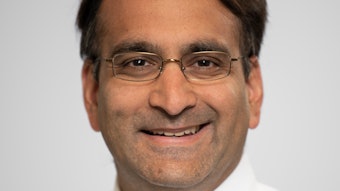Bringing Music Back to Life
Academy member Alexander Chern, MD, seeks to restore the full beauty of music to those with hearing loss.
 Alexander “Alex” Chern, MD
Alexander “Alex” Chern, MD
Music Enjoyment Among Hearing Aid Users
During the AAO-HNSF 2024 Annual Meeting & OTO EXPO SM, Dr. Chern presented “Time After Time: A Multiyear Longitudinal Assessment of Music Enjoyment in Hearing Aid Users.” Along with Columbia University medical student Isaac Alter and their mentor Anil K. Lalwani, MD, the group looked at the music enjoyment of bilateral hearing aid users across a spectrum of hearing loss at two points about three years apart. They found that the level of music enjoyment that participants had before their hearing loss affected their music enjoyment and listening time after they received hearing aids.
“[We found that] hearing aid users who had a higher level of enjoyment before their hearing loss are more likely to be dissatisfied with music listening with their hearing aids, and they tended to spend less time listening to music,” Dr. Chern said. “Our study suggests that music lovers might represent a large proportion of people who wear hearing aids and whose music enjoyment is not adequately rehabilitated with hearing aids.”
A Lifelong Relationship with Music
Music has been a cornerstone of Dr. Chern’s life since an early age. He was diagnosed with hearing loss at a young age. He began playing the violin at the age of seven after his mother signed him up for lessons because she thought it would help with his hearing loss. He played seriously through college at Yale but stopped once he reached medical school at Vanderbilt University owing to his busy schedule. He fell in love with the violin again during his recovery following an accident in 2016. This experience led him to join the Music Cognition Lab at Vanderbilt University, run by neuroscientist Reyna L. Gordon, PhD, for a year before completing his last year of medical school. There, he studied how the neural basis of musical rhythm might overlap with other cognitive functions.
Discovering the Rhythm–Language Connection
“[The research group] was specifically interested in shared neural processes between rhythm and language,” Dr. Chern said. While working in the lab, they found evidence of a rhythmic priming effect, which means you see an improvement in grammar task performance that occurs if you’re exposed to a regular rhythm before you hear speech. They demonstrated this in typically developing children and they also gathered some preliminary data that showed that this phenomenon might occur in cochlear implant users as well. “The whole experience was very formative for me personally as well for my career trajectory,” Dr. Chern said.
Finding the Connections Between Hearing Loss and Cognitive Decline
After graduating from medical school, Dr. Chern began his residency in otolaryngology–head and neck surgery at the New York-Presbyterian Hospital – Columbia and Weill Cornell campuses. While there, with the guidance of otologist-neurotologist Justin S. Golub, MD, MS, he spent four-and-a-half years studying the connections between hearing loss and cognitive decline. “That's the million-dollar question [we’ve been trying to answer],” he said. Dr. Chern and Dr. Golub focused much of their work on subclinical hearing loss (i.e., hearing loss that is still within the normal range of hearing and cognition).
“There are a lot of different mechanisms that may connect hearing loss and cognitive decline,” Dr. Chern said. These can be divided into common or causal mechanisms (e.g., hearing loss somehow leads to cognitive decline or dementia). Examples of common mechanisms would be microvascular disease, such as a stroke or series of mini strokes. “This can cause you to have hearing loss, but it could also cause you to have cognitive decline,” Dr. Chern explained. “There might also be some other unknown neuropathologic processes that could cause both.”
Causal mechanisms include age-related hearing loss, for example, contributing to social isolation. Within the medical community, hearing loss is known to be associated with social isolation, which is itself a risk factor for dementia or cognitive decline. Another common belief is that when you have age-related hearing loss, you could have associated changes in your brain structure, which then have downstream effects leading to changes in cognition or dementia. Or, a person with hearing loss is more likely to deplete much of their cognitive reserves simply trying to hear.
Toward a Sound Future
According to Dr. Chern, a lot of recent research has looked at the cross-sectional or longitudinal association between age-related hearing loss and dementia over time. Recently, a Johns Hopkins study group performed a randomized controlled three-year trial examining healthy aging and hearing interventions (such as the use of hearing aids). They found that hearing aids protected against cognitive decline in the group already at risk for cognitive decline. “In my mind, this suggests some evidence of a causal mechanism linking hearing loss and cognitive decline,” Dr. Chern said.
Dr. Chern plans to continue this work upon completion of his fellowship at Johns Hopkins, and hopes to become a successful clinician scientist investigating the intersection of music, hearing, and cognition.
